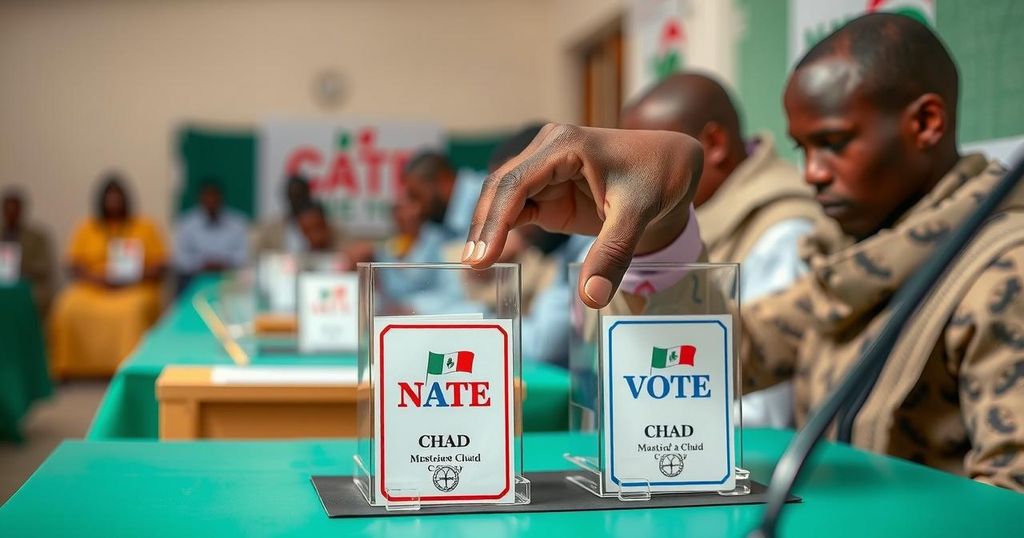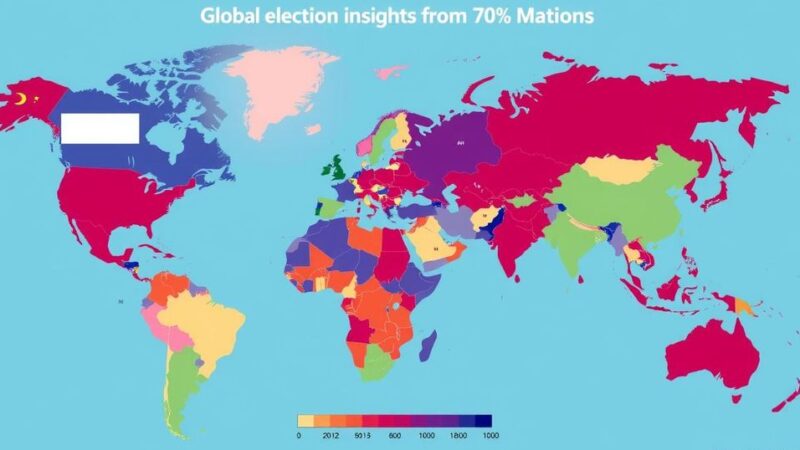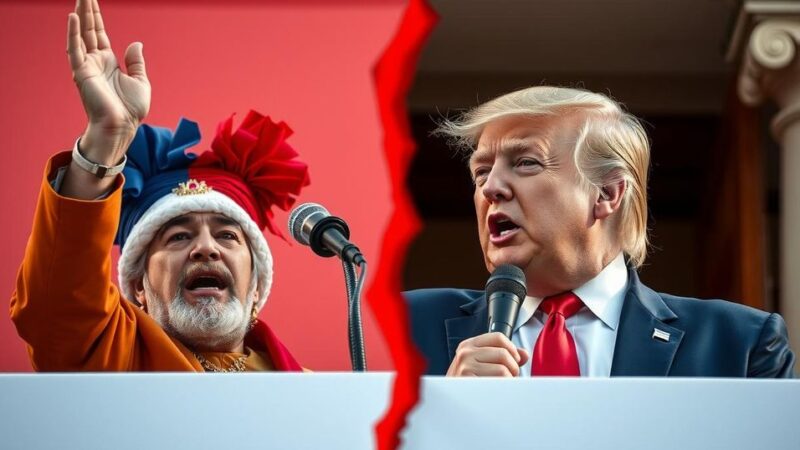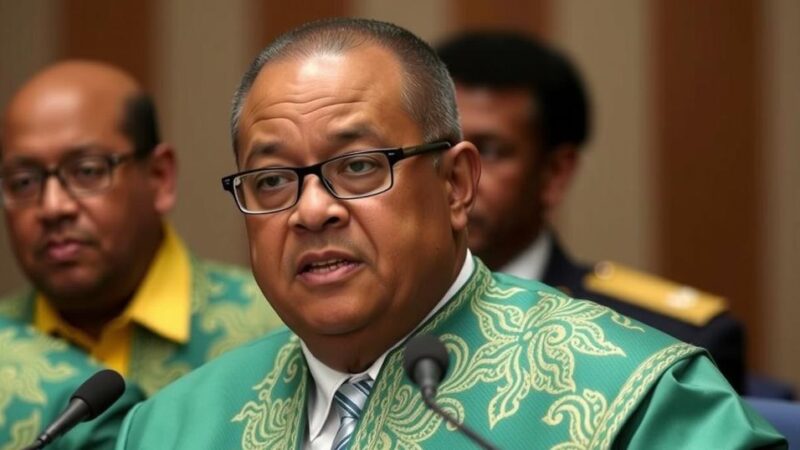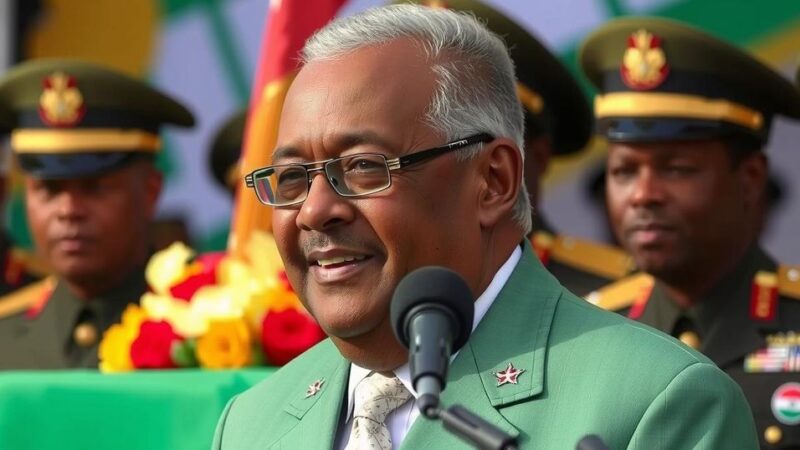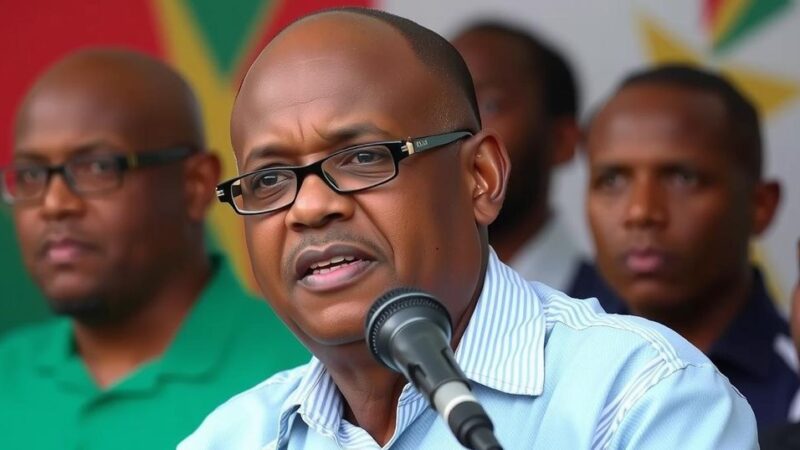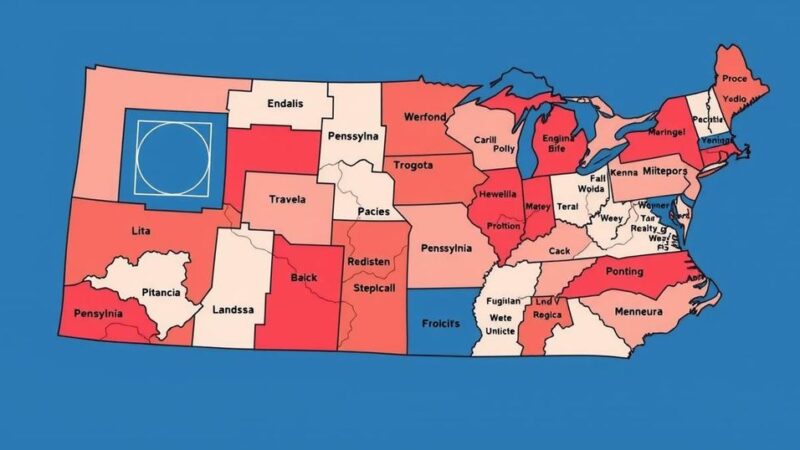Chad has commenced its first parliamentary election in 13 years amidst opposition boycotts and low voter turnout, as the government asserts that these elections signal a movement towards democracy. The election process is clouded by allegations of electoral manipulation and significant economic challenges facing the country.
Voting has commenced in Chad’s first parliamentary election in 13 years, officially viewed by the government as a pivotal move towards ending military rule. Voters are tasked with electing representatives for a new parliament, provincial assemblies, and local councils in one of the world’s economically challenged nations. However, the election is marred by a significant boycott from opposition parties, leading to low voter turnout, particularly in the capital city of N’Djamena where officials attributed lack of participation to “cold weather.”
The opposition, comprising various parties, has called for an electoral boycott, asserting that the results had been predetermined. With this boycott, candidates aligned with President Mahamat Idriss Deby Itno, who assumed power in 2021 following a military coup, are set to benefit. President Deby characterized the election as a “historic day,” encouraging voters to participate in the electoral process even as opposition leaders claimed the results were already manipulated.
On the ground, individual voters expressed their desire for change. A 39-year-old voter, Patrice Lumumba Deoumoundou, remarked on his aspiration for “more justice” and “more equality” despite skepticism about the election’s integrity. Initial reports from Chad’s electoral agency indicated a participation rate of over 72 percent among military personnel, suggesting vigorous turnout among select groups like soldiers and nomads due to logistical planning. The elections are being observed by numerous foreign observers to ensure a semblance of transparency, with the opposition raising alerts over reported ballot discrepancies.
Furthermore, these elections unfold amidst heightened concerns related to recurrent conflicts from armed groups such as Boko Haram, alongside geopolitical tensions involving former colonial powers. The ruling government presents the current elections as a definitive step towards democratization, seeking to solidify legitimacy after a tumultuous transition following Deby’s ascension to power, which occurred upon the death of his father, a long-time ruler.
Chad is undergoing a significant political transition, marked by its first parliamentary elections in over a decade. The current government, led by President Mahamat Idriss Deby Itno, asserts these elections are vital for restoring democratic governance following years of military rule. However, political opposition is strong, leading to a boycott of the elections under claims of electoral manipulation. This backdrop is complicated by the country’s socioeconomic challenges and security threats from regional insurgencies, highlighting the precarious nature of the electoral process.
In summary, Chad’s first parliamentary election in thirteen years is shaping up to be a contentious affair marred by opposition boycotts and claims of preordained results. While government sources report significant turnout, the prevailing sentiment among many citizens and politicians suggests skepticism about the legitimacy of the electoral process. Amidst socioeconomic challenges and regional instability, the future of Chad’s political landscape remains uncertain as the nation navigates its transition from military rule towards a more democratic framework.
Original Source: www.aljazeera.com

